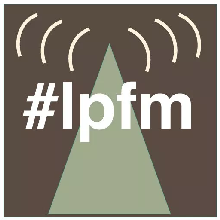Advertisement
|
FCC Petitioned by LPFM Over FM Interference Complaints
| RADIO ONLINE | Tuesday, July 16, 2019 | 8:13am CT |





|
 |
Today, the LPFM Coalition filed a Petition for Reconsideration to address FCC rulemaking that amends Part 74 of the rules regarding FM translator interference. Translators are unattended FM facilities licensed to broadcasters to 'repeat' an existing station on different frequencies. This FCC rulemaking threatens to change protections the public has long enjoyed, putting an individual's right to address interference caused by repeater stations at risk.
Currently, these designated repeater stations must respond to FCC complaints from any listener reporting that they harm reception to FM stations originating programming locally. If repeater station cannot fix the interference, they must shut down.
The new FCC rules would block millions of Americans from the right they now have to stop interference on the FM stations they prefer. The FCC rule change allows a single complaint from any one building. While those in single family homes can complain at will, those in multi-family and high rise buildings will lose individual rights. And, their individual voices will be ignored by the FCC.
"Listeners would become disenfranchised from their constitutional right to request redress when suffering from interference," says the Petition for Reconsideration filed at the FCC today by the LPFM Coalition.
From luxury towers to low-income housing, this rulemaking impacts any radio listener not living in a single-family home. However, this disenfranchisement may be more broadly felt in senior communities, low-income housing, and by those dependent on the radio for native language programing, news, and emergency information.
"It's unacceptable that the FCC would ignore complaints from millions of people of color in urban areas and college students who are more likely to live in large apartment buildings. Their right to listen to community and college radio without interference should be prioritized and included in any complaints about encroaching translators," said coalition member, Vanessa Maria Graber, Station Manager of WPPM-LP in Philadelphia.
The LPFM Coalition brings together 113 hyper-local low power FM stations and their advocates, as they seek to protect hard-won rights under the Local Community Radio Act of 2010.
In addition to "misstatements and mistaken attributions" the Coalition found that the FCC failed to meet certain statutory requirements, and that this failure will require remedy. Among those are items are:
- The "One Building / One Complaint" rule which would "officially ignore all but the first listener complaint from a single building, no matter how large, how tall or how wide the building is." This would result in all complaints, other than the first one, being summarily dismissed from locations like a college dormitory, low-income housing building, luxury tower, or a home for the elderly.
- The FCC illegally imposes new rules on old interference disputes. After what is often a months-long attempt to eliminate interference, listeners and their favorite stations will suddenly have the rule shifted to make it harder for them to get relief from interference. This violates the Administrative Procedure Act, which bars such retroactive rulemaking by Federal agencies.
- The FCC contradicts itself regarding FM Translator preclusion showing requirements. The Administrative Procedure does not allow for internally inconsistent and illogical regulation.
- This illogic leads to violations of the Local Community Radio Act of 2010, which mandates efforts to develop community-based low power radio stations (aka "LPFM") to meet the fundamental media needs of local areas. The FM band is more crowded than ever at a time when the same content is often repeated on more channels. This undermines the efforts to foster hyper-local stations by making spectrum impossible to find in many well-populated areas. Illogical regulations that hinder LPFM development run contrary to the Act's purposes.
"As the demand for spectrum continues to increase, prioritizing translators-new to the FM band-over stations that originate local programming, is a mis-application of the current rules and neither serves the local public interest or passes the common sense test." said coalition advisor Clay Leander.
Advertisement
|
Latest Radio Stories
Don Lemon, Journalist Georgia Fort Arrested Over Protest
|
KIRO Newsradio Adds Chad Benson to Weeknight Lineup
|
Tom Donahue Remembers Talk Radio Pioneer David Gold
|
Advertisement
|
CRS 2026 Unveils Three-Day Research Lineup
|
Radio Hall of Fame Opens 2026 Nomination Process
|
FCC Codifies Foreign Ownership Review Rules
|

















